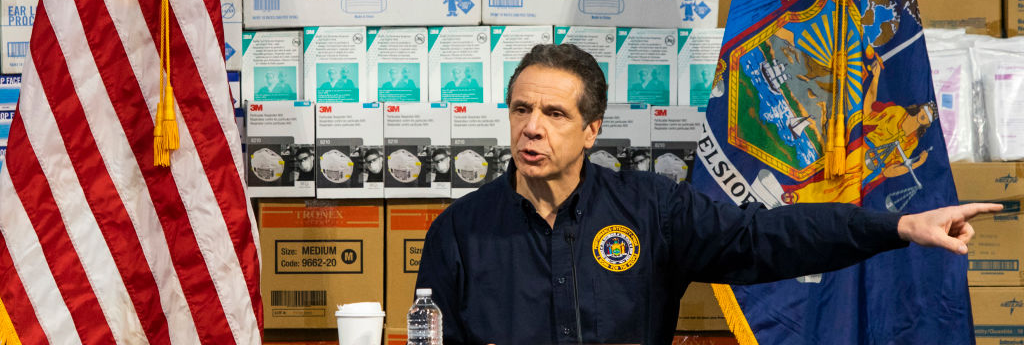Disagreements between the federal government and some states about how to deal with the coronavirus pandemic and when to reopen the country have made headlines lately. Amid the clashes, the latest Economist/YouGov Poll finds that Americans generally believe the federal government should be leading the response. Many, according to the survey, recognize that it isn’t doing that.
Republicans give a slight nod to state primacy (40%) when it comes to handling the crisis, though they divide evenly when it comes to the question of who is in charge (40% say the state government and 40 percent say the federal government). Democrats, as well as Independents, favor direction coming from the federal government, but at the moment most of them say the states and their governors are in charge.
A majority in all regions rate their state’s response to the pandemic as excellent or good, with the highest ratings in the Northeast (61% excellent or good) and the Midwest (60% excellent or good). Most also think their local government has done an excellent or good job, but that’s not the case when Americans evaluate the federal government’s handling of the epidemic.
Just over a third rate the federal government’s performance as excellent or good, but 57% say it is only doing a fair or poor job. Assessment of the federal government (unlike Americans’ state and local government evaluations) is highly partisan: 63 percent of Republicans, but only 15 percent of Democrats and 31 percent of Independents say the national government is doing a good or excellent job.
The reasons for the negative assessment of the national government’s response can be found in the answers to a number of poll questions. Two-thirds believe the federal government was not well-prepared for the crisis, and half say it is still not doing enough. These poor assessments affect opinions of President Donald Trump as well. About half (52%) believe the President waited too long to act.
His approval rating on handling the virus is mixed, as it has been for most of the pandemic, starting off well in February (when many had no opinion), but dropping at the end of February and only moving upward in mid-March. It reached a high point at the end of that month, after the president declared a national emergency and later extended social distancing guidelines. But since then, the sometimes confusing messages from Washington have pushed down the president’s approval rating.
The Centers for Disease Control as well as Dr. Anthony Fauci, Director of the National Institute for Allergy and Infectious Diseases, remain the two most reliable sources of medical advice, according to the poll. Two-thirds trust the CDC, while 56% have trust in Dr. Fauci’s medical advice. They are the only two figures both Republicans and Democrats believe. Most Democrats trust the medical advice given by New York Governor Andrew Cuomo, most Republicans trust the medical advice they get from President Trump.
The pandemic has highlighted the work of governors, even the times when they quarrel publicly with the President. Several of them are not yet well-known, and for most governors, evaluations are driven by partisanship.
Only Ohio’s Republican Governor, Mike DeWine, the first governor to postpone his state’s primary election because of coronavirus, and who has taken a more active role than many governors, including sometimes disagreeing with Trump, gets similar evaluations from both the Democrats and the Republicans that rate him. Republicans give Cuomo and California Governor Gavin Newsom negative evaluations, but a third of Republicans rate Cuomo positively, and one in five has a favorable rating of Newsom.
Most of the governors receive positive assessments from those in their own regions: for Cuomo, favorable ratings outweigh unfavorable ones in the Northeast 58% to 22%, and people who live in the West are more than twice as likely to rate Newsom positively than negatively (44%-20%). Florida Governor Ron DeSantis and Michigan Governor Gretchen Whitmer receive mixed assessments in their regions. Whitmer has been criticized by Trump. DeSantis is seen by some as being slow to respond to the outbreak.
See the toplines and tables from this week’s Economist/YouGov Poll
Related: Black Americans twice as likely to know someone who has tested positive or died from COVID-19
Image: Getty










